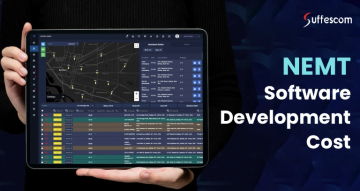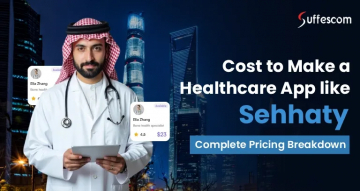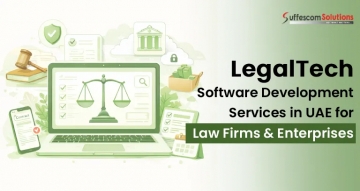How to Create an Educational App Like Masterclass

E-learning has become a major business sector thanks to educational platforms like Masterclass, which deliver premium learning materials to students. Across business and music and culinary fields Masterclass operates as a premium educational platform which lets world-famous experts deliver premium courses. The similar to masterclass achieves its unique format by delivering professional video lessons and involving interactive student activities while ensuring complete learning convenience.
The worldwide e-learning sector will achieve a $1 trillion market size by 2032 because of rising interest in remote learning programs. The technological evolution in educational apps through AI, AR/VR, and gamification elements produces more effective platforms that continue to grow and become profitable.
This guide provides all the necessary information about developing an educational app like Masterclass that will lead you to success.

Why E-Learning Platforms Like Masterclass Are Gaining Popularity?
E-learning apps like MasterClass have gained immense popularity due to several key factors that enhance the learning experience. Here's a detailed breakdown of each point:
1. Convenience
Diversity is among the essential benefits which e-learning platforms deliver to educational settings. E-learning apps break away from conventional in-person learning since they provide lesson access at users' flexible scheduling needs. The learning system stands as an excellent solution for students along with working people and students who lead active lives. Users have the advantage of studying whenever they want because they can access education through their smartphones and tablets and laptops on different devices.
2. High-Quality Content
Users can learn from internationally celebrated experts through the content provided by platforms such as MasterClass. The platform enables students to bypass general instructors and receive direct knowledge transfer from professionals ranging from filmmakers through musicians and writers to entrepreneurs together with athletes. The content delivery matches industrial standards because it employs professional video lessons alongside realistic examples and narrative structures that create an absorbing learning experience.
3. Personalized Learning
The user experience in learning apps gets enhanced through artificial intelligence (AI) implementation. Users experience AI-powered content recommendations through consistent monitoring of their educational activities and evaluation of which classes they attend with which learning style preferences. The system uses these assessments to show them subject material that best matches their needs and learning approach. The tailored recommendations created by personalization technology lead students to find courses that match their skills and interests thereby they learn better in a more engaging manner.
4. Interactive Features
Assessments of different types and quizzes provide learners the opportunity to measure their knowledge level so they can strengthen essential material understanding. Through Community Discussions users access forums or discussion boards that let them communicate with instructors along with fellow learners through questioning and exchange of feedback and insights. Practice-based Projects serve as crucial requirements for developing important competencies. Students in many courses gain practical application through a combination of course exercises and assignments as well as authentic, real-world projects.
Transform Your Idea Into Reality!
Partner with our expert developers to build an engaging and scalable educational app. Let’s shape the future of e-learning together!
Types Of Educational Apps Like Masterclass
Before diving into education app development services, it's crucial to understand the different types of educational applications:
The development of educational applications requires understanding five key categories of these programs before proceeding.
Course-Based Learning Apps
Users can access in-depth subject knowledge on business technology arts and sciences through tailored courses delivered by Coursera and Udemy.
Skill-Based Learning Apps
MasterClass and Skillshare position their programs towards hands-on skill development instead of traditional scholarly learning. Training materials on these platforms stem from established individuals and industry masters who freely provide their know-how to help others learn.
K-12 Learning Apps
The purpose of Khan Academy is to address school children of all ages by providing stem instruction and lessons in English. Video lessons alongside self-paced exercises and digital educational tools with the goal to assist teachers in school education form the core features of these tools.
Language Learning Apps
Testing demonstrates that the two most efficient language-learning apps are Duolingo and Babbel because their lesson interaction system directly involves the users. The language learning experience on Duolingo becomes both rewarding and enjoyable because of features that include daily streaks combined with rewards and bite-sized lessons.
Tutoring Apps
In app like Chegg study, students can find qualified tutors who provide personalized face-to-face instruction for the topics that challenge their understanding. Users can get professional help on all academic subjects through these applications which assist with science, mathematics and humanities in addition to other disciplines.
Must-Have Features List For Your Educational Application

To create a mobile app of educational app like Masterclass, consider these essential features:
User Profiles And Customization
An educational application will only succeed if their users are able to create accounts that will enable them to monitor their advancement, save specific publications, and receive tailored advice. Al algorithms can offer relevant users’ materials based on their preferences, completed publications, and hobbies, thus ensuring that they have a personalized learning experience.
High-Quality Video Content
MasterClass uses cinematic approaches to teach students which makes supporting video streaming through high definition or 4k resolutions essential for the platform. High-quality lesson production enhances learner experience because it draws greater engagement from students. Users gain convenient access to education despite poor internet connectivity because the platform allows adjustable playback features and materials available for download alongside subtitle options.
Interactive Learning
To maintain the users’ attention, an application should include integration of quizzes, assignments, discussion forums, and peer collaborations. These elements enable reinforcement of learning because learners need to practically apply their knowledge. Community discussions are another opportunity for learners to share their insights, post questions, and work with other learners which makes learning more interesting and dynamic.
AI Powered Recommendations
AI technology creates smart course recommendations that use user preferences together with educational experience and acquired capabilities to make suggestions. The lessons automatically adjust their complexity using AI while generating recommendations for individual students.
Gamification
User engagement for learning goals increases through the implementation of gamification features that include badges alongside leaderboards together with progress tracking bars combined with completion certifications. Directed toward continuous engagement are competitive features that combine challenges with streaks alongside peer comparison elements. The completion certifications provide credibility and users can display them on their LinkedIn profiles to demonstrate their accomplishments.
Offline Mode
Online learners specifically need offline mode to obtain content while disconnected from the internet. The platform should enable users to download video lessons as well as both notes and assignments for later off-line viewing. Offline mode delivers substantial advantages to users who are connected sporadically or students with slow internet access or roaming students lacking internet access.
Multi-Device Support
The delivery of seamless learning demands that the system functions uniformly between browsers and smartphones with tablets included as well. Data synchronization between different devices permits learners to begin studying on one device then resume their work at the same spot using another device type.
Secure Payment Gateway
The effective monetization of the app demands the implementation of safe payment gateway solutions. The app should allow users to join through subscription plans (monthly/yearly) and single payment options in addition to giving free access with premium features to draw customers from diverse backgrounds. Users will benefit from payment system encryption alongside support for PayPal, Apple Pay, Google Pay, credit/debit cards and regional payment gateways.
Detailed Guide of Steps to Develop Apps Like Masterclass

A successful educational app which comes from education app development services needs precise planning to succeed.
Market Research & Competitor Analysis
A proper market investigation must happen before MasterClass like Elearning application development, since it identifies user choices, examines current market trends, and detects business voids. The distinction between your app will emerge from how you examine pricing methods, user engagement techniques, and content delivery formats, so you can create distinct value for your users. An essential part of development requires studying the targeted audience since it helps designers create features that match individual learning requirements of professionals, students, and hobbyists.
Define Features & Functionalities
After completing research about the project, the crucial step involves defining all essential features that the app should have. The application combines user profile management with personalized recommendation systems and features high-quality videos supported by interactive learning functions, quizzes, and assignments, as well as gamification mechanics and offline availability.
Choose the Right Technology Stack
Using an appropriate technology stack establishes enabling factors for scalability and security and performance excellence in the app. The three choices for mobile apps include Swift (iOS), Kotlin (Android), and the combination of React Native and Flutter for developing across platforms. Node.js together with PostgreSQL Firebase complements the Python-based backend that uses Django/Flask or Ruby on Rails as programming frameworks.
Design UI/UX
User engagement and retention depend deeply on creating a superior user interface (UI) and high-quality user experience (UX). The app must possess a simple, elegant interface design that provides smooth navigation through its structure.
Develop the MVP (Minimum Viable Product)
A wise first step is to build an MVP (Minimum Viable Product) that combines crucial features to evaluate market potential before making a final product. Users need to create accounts while watching videos, enrolling in or tracking their learning progress, and making payments through the Minimum Viable Product (MVP).
Integrate Content & Payment Gateway
An educational application needs top-quality content to succeed. Industry specialists, instructors, and content creators partnering with the platform lead to significant engagement value in the courses. Content management should include video hosting, text-based materials, interactive elements, and subtitle options.
Test Rigorously
Core feature verification takes place during functional testing, while performance testing evaluates system speeds and scalability. Security testing evaluates both payment safety and data protection, and user acceptance testing confirms interface intuitiveness.
Launch & Market Your App
Once the app is thoroughly tested, it's time for the official launch on the Google Play Store, Apple App Store, and web platforms. A strong marketing strategy, including social media promotions, influencer partnerships, content marketing, app store optimization (ASO), and paid advertising, is essential to attract users.
Collect Feedback & Improve
Continuously collecting user feedback post-launch helps identify pain points, technical issues, and feature requests. Analyzing user behavior, retention rates, and engagement metrics provides valuable insights for future updates.
Cost Breakdown for Developing a Mobile App Like MasterClass
The cost to develop mobile apps like Masterclass depends on several factors: features, technology stack, design complexity, and development team location.
| Component | Details | Estimated Cost ($) |
| Market Research & Planning | Competitor analysis, audience research, strategy development | $5,000 - $15,000 |
| UI/UX Design | Wireframing, prototyping, high-fidelity UI design | $8,000 - $25,000 |
| Front-End Development | React Native, Flutter, or native iOS/Android development | $20,000 - $50,000 |
| Back-End Development | Server setup, APIs, database management | $25,000 - $60,000 |
| Video Streaming Integration | Cloud storage (AWS, Vimeo, Brightcove), compression, security | $10,000 - $30,000 |
| AI-Powered Recommendations | Machine learning algorithms for personalized content suggestions | $15,000 - $40,000 |
| Interactive Learning Features | Quizzes, assignments, discussions, gamification | $10,000 - $30,000 |
| Payment Gateway Integration | Stripe, PayPal, Google Pay, Apple Pay | $5,000 - $15,000 |
| Offline Mode | Downloadable courses, progress syncing | $10,000 - $25,000 |
| Multi-Device Support | Compatibility across mobile (iOS, Android) & web | $15,000 - $40,000 |
| Testing & Quality Assurance | Bug fixing, performance testing, security testing | $10,000 - $25,000 |
| Deployment & Maintenance | App store submission, updates, customer support | $8,000 - $20,000/year |
| Marketing & Promotions | ASO, SEO, paid ads, influencer marketing | $10,000 - $50,000 |
Total Estimated Cost to Build Apps Like Masterclass - $10,000 to $300,000+
How To Monetize Your Educational Application?
There are several monetization strategies suggested by elite educational app development company to make your app profitable:
Subscription Model
A subscription-based model provides users complete course access for a fixed monthly or annual fee. This model performs well for platforms like MasterClass, Coursera Plus, and Skillshare, offering learners an extensive content library for a recurring payment.
Get a Free Consultation Today!
Do you have a great idea for an educational app? Our mobile app development company offers expert guidance to bring your vision to life. Contact us now!
One-Time Course Purchase
Some learners prefer lifetime access to detailed courses rather than committing to a subscription. Build an app like Udemy and Teachable allows users to buy unique courses, making it a cost-effective choice for those who want to pay only for their requirements.
Freemium Model
The freemium model attracts a larger audience by providing free access to introductory lessons, basic introductory courses, or limited-time trials. At the same time, premium features—such as exclusive content, certificates, or mentorship. Apps like Duolingo and Coursera use this approach.
Advertisements & Sponsorships
Monetizing through advertisements and sponsorships authorizes e-learning platforms to generate revenue without directly charging users. Platforms can display videos, banners, or in-course promotions from relevant brands.
Certifications
Many learners seek certifications to improve their resumes or validate their skills. Platforms like Coursera, edX, and LinkedIn Learning show paid certificates for courses accredited by universities or industry-recognized organizations.
Technology Stack For An Educational App Like Masterclass
A robust technology stack is essential for performance and scalability:
| Category | Technologies |
| Frontend | React.js, Flutter, Swift (iOS), Kotlin (Android) |
| Backend | Node.js, Django, Ruby on Rails |
| Database | PostgreSQL, MongoDB |
| Cloud Storage | AWS, Google Cloud |
| Payment Gateway | Stripe, PayPal |
| AI & ML | TensorFlow, OpenAI API |
Conclusion
Building an educational app like Masterclass requires a well-thought-out strategy, high-quality content, and a seamless user experience. By focusing on engaging features, robust technology, and effective monetization strategies, you can create a successful mobile app e-learning platform that stands out in the competitive market.
Ready to build your educational app using mobile application development services? Start planning today and revolutionize online learning!
FAQs
How much does it cost to develop an app like MasterClass?
The development cost ranges from $10,000 to $150,000, depending on features, platform choice, and technology stack.
How long does it take to build an e-learning app?
On average, it takes 2-4 months to develop an educational app, including planning, UI/UX design, development, testing, and deployment.
What are the key features of an app like MasterClass?
Essential features include high-quality video content, interactive learning tools, AI-powered recommendations, gamification, offline access, and a secure payment gateway.
How can I monetize my e-learning app?
You can implement monetization strategies such as subscription plans, one-time course purchases, freemium models, advertisements, and paid certifications.







